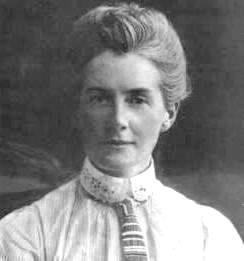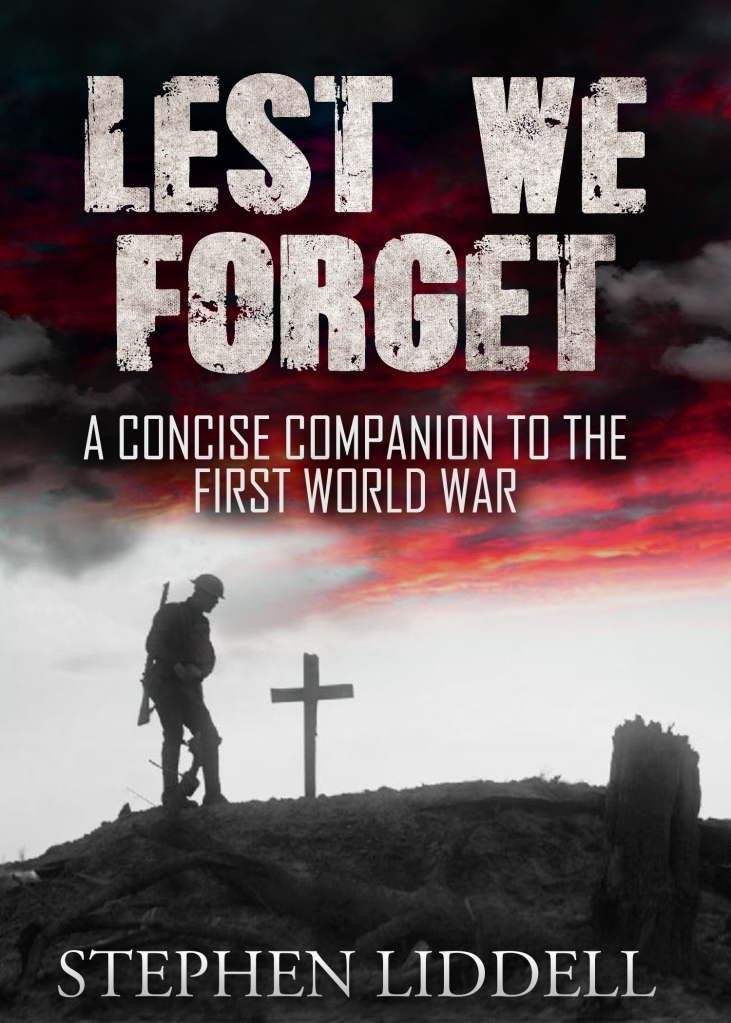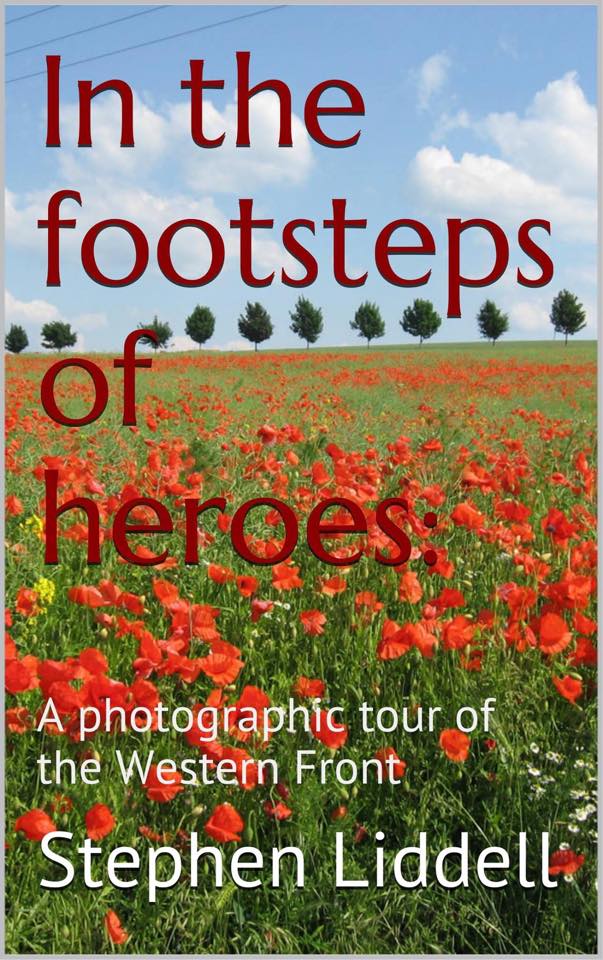Many of us are familiar with the phrase “Patriotism is the last refuge of the scoundrel”, a quote that remains as true today as it was when it was first coined and is still evident by many politicians in particular around the world. Not so many people though are familiar with the equally if not more worthy phrase said by Edith Cavell “Patriotism Is Not Enough” which given her courageous actions seem very sad.
I must say I have been past her statue in London several times in the last year and though I always stopped to read her quote and think to myself that Edith Cavell must have been a remarkable woman, I still didn’t know much about her. Neither did any of my tourist guests which I showed round London and considering I have guided people up to 90 years old, this is a little bit sad.
As we approach Armistice Day, I want to write just a few articles about World War One but from a different perspective and there is no better place to start than with Edith Cavell.
Edith was born on 4th December 1865 in the village of Swardeston in that beautiful English county of Norfolk. She was the eldest of four siblings and her father being a Reverend, grew up to realise that despite her modest means, she should always try to help those less fortunate than herself.

Upon reaching adulthood, Edith trained to become a nurse at the Royal London Hospital and upon qualifying soon found herself in Belgium where she began to play a prominent and pioneering effort it modernising the nursing system and standard of care in that country. When war broke out in the summer of 1914, Edith was visiting her mother back in England but immediately returned to Brussels where her hospital was commandeered by the Red Cross.
By November 1914, Brussels and most of Belgium had been occupied by the advancing German Army and those horrendous acts collectively known as Rape of Belgium were underway in which the local civilian population underwent the most despicable acts at the hands of their occupiers and went someway not only to increasing recruitment in the British and Commonwealth armies but also as useful British propaganda that more than played its part in the eventual American entry into The Great War.
Under the guise of being a nurse, Edith along with one or two brave individuals and in stark contravention to German Military Law, began to shelter and then smuggle out of Belgium, sick and injured British soldiers. Fake papers were produced, monies arranged and a network of safe houses were established allowing trusted guides to get these British and then also French soldiers out of the warden and to the neutral Netherlands.
Soon though, German authorities became suspicious of her activities, something not helped by Edith’s outspoken attitude to the war and the atrocities going on all around her. In less than a year, she was betrayed by a Frenchman, Gaston Quien, who was later found guilty of being a collaborator.
For the next 10 weeks she was held in Saint Gilles prison where she confessed that she had harboured and assisted in the escape of 60 British and 15 French Soldiers as well as helping around 100 Belgian and French soldiers mach the front lines.
An important point in her trial was her admission that many British soldiers had contacted her from the U.K. to thank her for her kindness and bravery which in German eyes implied she had helped soldiers return to an enemy country. The penalty according to German military law was death. Paragraph 58 of the German Military Code said; “Will be sentenced to death for treason any person who, with the intention of helping the hostile Power, or of causing harm to the German or allied troops, is guilty of one of the crimes of paragraph 90 of the German Penal Code.” The case referred to in the above-mentioned paragraph 90 consists of “Conducting soldiers to the enemy”, although this was not traditionally punishable by death.
Article 7 of the First Geneva Convention of 1906 was in effect and observed by British and German forces and this secured the safety and wellbeing of all medical staff but this protection was notable removed for those involved in belligerent action.
Any plea for Edith from her home government was likely to make things only worse for the brave nurse and so London asked the then neutral United States to state their case. The leading member of the U.S. administrative staff in Belgium a Mr Hugh S. Gibson asked Germany to show clemency as executing Edith would further damage their already tattered international reputation….
We reminded [German civil governor Baron von der Lancken] of the burning of Louvain and the sinking of the Lusitania, and told him that this murder would rank with those two affairs and would stir all civilised countries with horror and disgust. Count Harrach broke in at this with the rather irrelevant remark that he would rather see Miss Cavell shot than have harm come to the humblest German soldier, and his only regret was that they had not “three or four old English women to shoot.”
The German governor later retracted this and stated he believed that Edith should be saved due to the fact that she had also saved countless German soldiers with her medical care but his request was overruled by the local German military commander who insisted her execution should be carried out with immediate effect and so did not allow time for her case to be considered by superiors in Berlin.
Four others were also sentenced to death although in the end only two were executed. The trial of Edith was far from perfect and though she was questioned in French, her answers were noted in German, allowing plenty of scope for changes to have been made to her answers. However it should also be noted that Edith never in anyway tried to minimise her role or contest anything.
Finding herself stuck in solitary confinement, it became clear that Edith Cavell was going to be made an example of and on her final night, she was permitted to receive Holy Communion by an Anglican chaplain, Father Gahan. It was here that she said her famous line.
“Patriotism is not enough. I must have no hatred or bitterness towards anyone.”
Moments before her execution she asked the German Chaplain to convey a message
“Ask Father Gahan to tell my loved ones later on that my soul, as I believe, is safe, and that I am glad to die for my country.”
Despite last minute interventions from the USA and Spain to ask for at least a stay of execution, at 7am on 12th October 1915, 8 German Soldiers formed a Firing Squad. Incredibly despite the remarkable nature of the case, it is thought that the Death Penalty put on Edith had not yet even come into force, she was even by local German law, murdered illegally.
Apparently Edith refused to even wear a blindfold and it has been alleged that it is possible Edith was shot dead by a German officer using his revolver whilst she was unconscious. Either way, the callous actions shocked the world. All except for German whose Foreign Affairs Undersecretary Dr Alfred Zimmerman reported.
It was a pity that Miss Cavell had to be executed, but it was necessary. She was judged justly…It is undoubtedly a terrible thing that the woman has been executed; but consider what would happen to a State, particularly in war, if it left crimes aimed at the safety of its armies to go unpunished because committed by women.
The body of Edith was immediately tended to by local Belgian women and she was buried until the war finished when she was taken back to England for a service at Westminster Abbey before being once more buried but this time at Norwich Cathedral.

Of course Germany may have been fearful that if Edith had been pardoned then it would open a loop hole for other women to act against the German state. Germany also insisted its laws were well known and publicised but as in many instances, most notably the sinking of the Lusitania, the British replied that forewarning of illegal acts does not in anyway make them ok when they are carried out.
Edith Cavell is now memorialised around the world, including the statue that I pass often in St Martins Lane, just above Trafalgar Square. She will also shortly be commemorated on a £5 coin.

As brave as the men were who fought and died in WW1, I think it’s important to remember people such as Edith Cavell who were every bit as brave and selfless and whose example we would all do well to follow today.
If you enjoyed this post please do consider looking at my WW1 History book, Lest We Forget, published by Endeavour Press of London and available in paperback, Kindle, iBooks and other formats. It details WW1 from every angle and the point of view of many countries including the role of Women in War.

And also my photo guide to the Western Front, In The Footsteps of Heroes.

I think few people know about Edith Cavell today. She was a very brave woman–a true hero in that she did what was right and cared for wounded soldiers on both sides. Thank you for your post about her. Her name came up in the recent series, “The Crimson Field,” on Masterpiece Theatre about WWI nurses at a field hospital in France.
LikeLiked by 1 person
Yes, I think the fact the she saved people from both sides shows her true worth. We watched “The Crimson Field” on BBC a year ago, it was great but shamefully they decided not to make any more.
Related to saving lives on both sides I was reading a few weeks ago about a British commando in the Falklands War and how for hours they were trying to attack these Argentinian soldiers in a very fierce mountainous battle. As soon as the battle was won, they instantly went from trying to kill the enemy into saving lives and giving them blood transfusions. I thought how amazing to be able to keep their humanity in such conditions. One of the Argentine men came here a few weeks ago to thank the man who saved his life.
An amazing story on all sides.
LikeLiked by 1 person
Wow–that is a great story, Stephen!
LikeLiked by 1 person
This really made me think anew about this remarkable lady
LikeLiked by 1 person
Wasn’t she a real star. She should be much better known than she is.
LikeLike